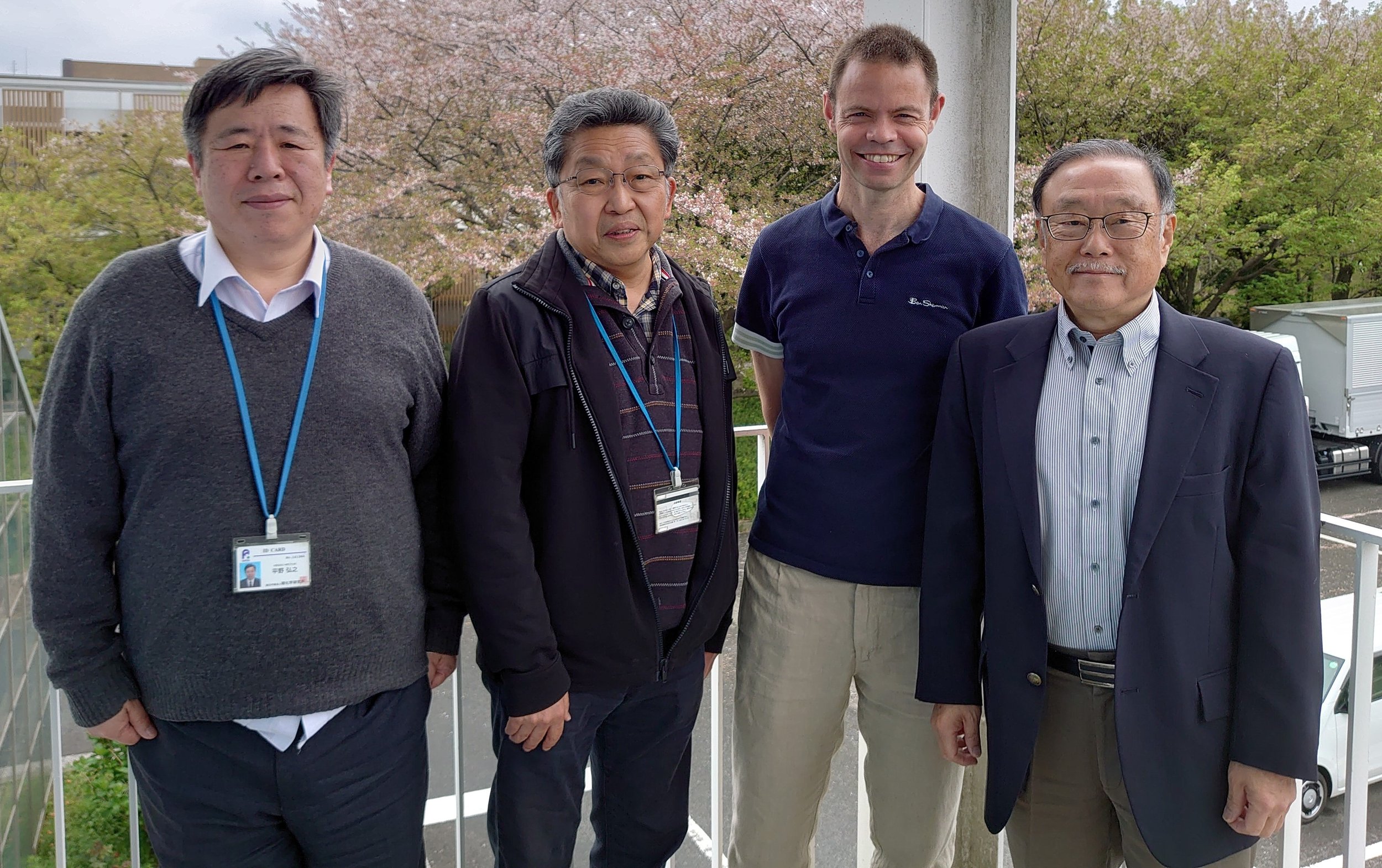
Research led by PRiME faculty member, Professor Andrew Fraser at the University of Toronto’s Donnelly Centre for Cellular and Biomolecular Research has achieved a significant milestone in identifying a new class of compounds with promise for combatting the parasitic worm infections that affect over a billion individuals worldwide.
The research conducted by Andrew Fraser and his PhD student Taylor Davie, in collaboration with experts from the renowned RIKEN Center for Sustainable Resource Science, has recently been published in the journal Nature Communications.
Parasitic worms such as hookworm and whipworm pose a significant global health threat, with limited treatment options available and increasing drug resistance. To address this challenge, Fraser's team has focussed on a key metabolic pathway that enables parasites to survive in the low-oxygen environment of the host gut. This pathway is unique to the parasites — drugs that block it should kill the parasites but without harming the infected human.
In this research, they teamed up with RIKEN and utilized RIKEN’s extensive collection of natural products, screening 480 structural families of the natural products to find compounds that could disrupt this crucial pathway in the model organism, Caenorhabditis elegans. They found a new family of compounds that effectively block a key mitochondrial enzyme required for this unique metabolism and is essential for the survival of related parasites, paving the way for the development of innovative anthelmintic drugs.
Initial tests conducted in collaboration with experts from the Swiss Tropical and Public Health Institute (Swiss TPH) demonstrated the potential of these new compounds in combating parasitic infections, showing clear effects in mice.
“Over a billion people are infected with these parasitic worms — it is a huge global health problem. Our team, and our collaborators around the world, have made real progress in targeting this pathway and we hope it ultimately leads to new and better drugs to help us combat these infections. This collaboration with RIKEN has also been beautiful to me — the pathway we are targeting was first found in Japan over 60 years ago and has long been known as a potential Achilles heel for parasites. We hope our screens will bring that promise to reality,” said Andy Fraser.
“It's also another great example of the power of basic research drive innovations. We started this project as pure research — we just wanted to measure how drugs affect worm movement. Literally the very first drug we tested gave us an unexpected result — that ultimately led to discovering the key pathway, the main targets, and the screens that gave us these new drugs. So much real progress is driven by this type of discovery science — it is the unexpected that opens new doors and new treatments.”
We are very pleased with the results of Fraser et al. demonstrating the usefulness of our library. It also shows the power of this screening approach which lets researchers screen a very large molecular space with a very focused collection of natural products. This makes screening very efficient which is key for difficult experiments like these involving whole animals.
Professor Hiroyuki Osada
Professor of Pharmacy at the University of Shizuoka and group director of the Chemical Biology Research Group at the RIKEN Center for Sustainable Resource Science
The findings offer new hope for the development of effective treatments against devastating diseases, which resulting in malnutrition, malaise and weakness, and can cause developmental defects and impaired growth in children, especially in developing countries.
Currently stationed at RIKEN in Tokyo, Fraser continues to conduct screenings for new compounds with anthelmintic potential, further advancing the quest for innovative treatments for helminth infections.
The collaboration between the University of Toronto and RIKEN exemplifies the power of interdisciplinary research and international partnerships in driving impactful discoveries. With a shared mission to improve global health outcomes, the teams are actively engaging with academic, NGOs, and pharmaceutical partners to accelerate the translation of research findings into tangible solutions for those affected by parasitic diseases. “Finding new drugs to treat parasitic infections is very challenging. One of the greatest strengths is the extremely tight-knit community of researchers, funders, and global health advocates who have all helped us enormously in this work and I’m very grateful for all their support and advice,” said Fraser.
This research was funded by the Canadian Institute of Health Research, and supported by the European Molecular Biology Organization.
Fraser conducting worm screenings in RIKEN’s laboratory (Photo provided by Andrew Fraser)
About PRiME
PRiME Next-Generation Precision Medicine is a community of world-class scientists, engineers and innovators at the University of Toronto and Affiliated Institutions that tackles unmet needs in drug discovery, diagnostics, and disease biology. With an interdisciplinary approach that goes beyond genomics and mutational profiling, PRiME is an accelerator of new discoveries and novel solutions that will deliver on the promise of Precision Medicine.
About RIKEN
RIKEN, a National Research and Development Agency, is Japan's largest comprehensive research institution renowned for high-quality research in a diverse range of scientific disciplines. Founded in 1917, initially as a private research foundation, RIKEN has grown rapidly in size and scope, today encompassing a network of world-class research centers and institutes across Japan.
For inquiries and further information about the research, please contact Andrew Fraser at andy.fraser@utoronto.ca.
For inquiries about PRiME, please contact Akshita Vincent, Director, Strategy & Partnerships at akshita.vincent@utoronto.ca.

